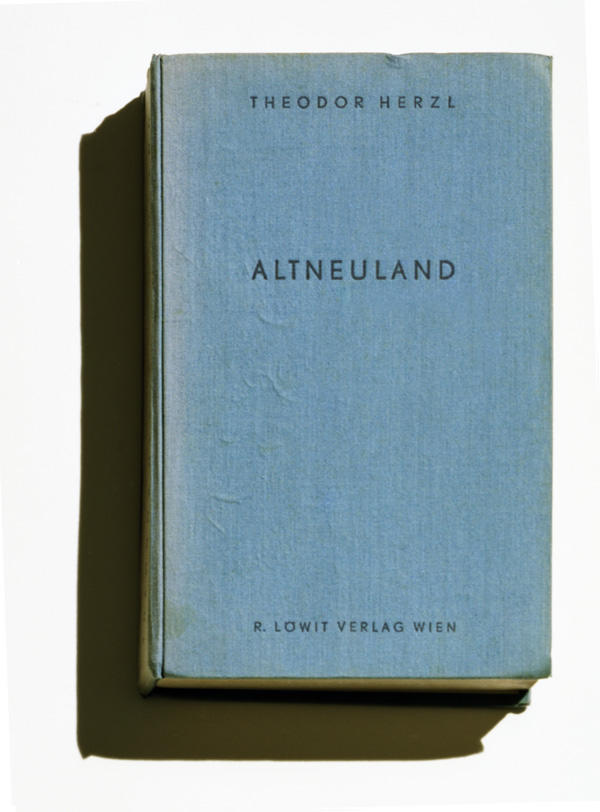
In 1902 Theodor Herzl, president of the Zionist Congress, published Altneuland (Old-New Land), a fantasy novel about an impossible Zionist utopia. A pair of European travelers, having spent twenty years on a deserted Pacific island, visit the Palestine of 1922 to discover a modern cosmopolitan Jewish society. The Jerusalem Herzl’s characters find is a world-class industrial city where the Jews speak German, go to the opera, and picnic along the Mediterranean. There is a kind of united nations at a glorious Palace of Peace. And there are Arabs, who are fine with the whole Jewish thing. More than fine — "It was a great blessing for all of us,“ proclaims Mr. Rashid, referring to the benefits of the New Society as well as the higher property values the arrival of the Jews entailed.
The book was translated into Hebrew the same year, under the title Tel Aviv — from tel, "ancient mound,” and aviv, “spring.” In 1909, a new Jewish town on the outskirts of Jaffa was renamed Tel Aviv, after Herzl’s novel.
The book appeared in English for the first time as Old New Land in 1941, six years before the Jewish state of Israel.